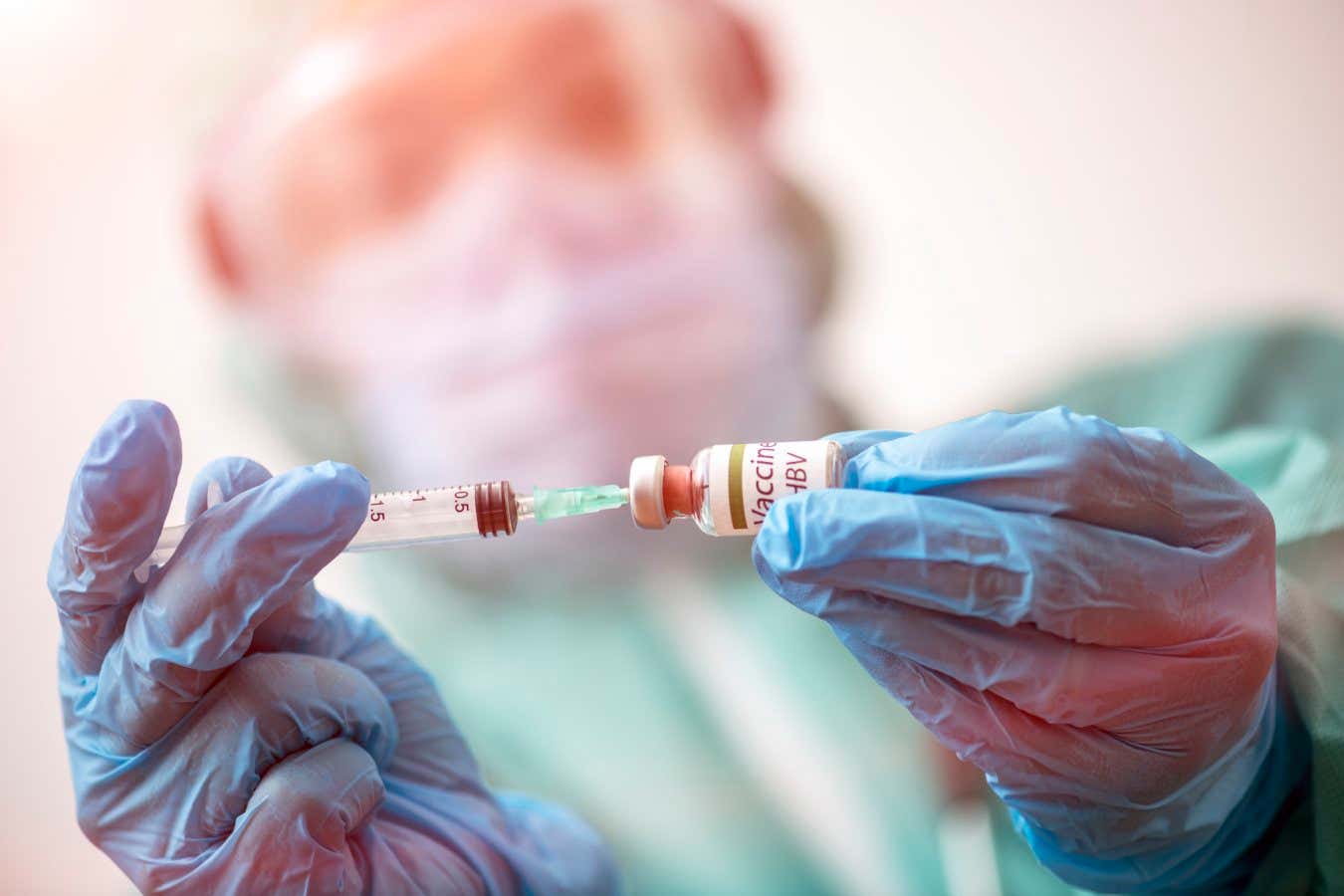
Immunisation against hepatitis B is routinely offered across much of the world
Mehmet Salih Guler / Getty Images
The hepatitis B vaccine seems to reduce the risk of developing diabetes, and not just by preventing the infection.
The vaccine is routinely offered to infants in most countries, usually via three doses. In the US, this became part of the vaccination programme in 1991, so only about 30 per cent of adults had full coverage in 2018.
Scientists have previously found the vaccine appears to cut the risk of diabetes. This may be due to the hepatitis B virus – which infects the liver and spreads through blood, semen and vaginal fluids – disrupting the organ’s ability to store sugar from the blood. This could raise the risk of diabetes, where blood sugar levels are persistently too high.
But prior studies have not looked at whether the vaccine might reduce diabetes risk among a group of both immunised and non-immunised people who haven’t contracted hepatitis B, which would suggest the effect acts independently of just preventing the infection.
To explore this, Nhu-Quynh Phan at Taipei Medical University in Taiwan and her colleagues analysed the health records of more than 580,000 people living across the US, Europe, Africa, Latin America, the Middle East and the Asia-Pacific. On average, these records spanned nearly four years for each individual between 2005 and 2023.
None of the participants, who were aged between 18 and 90, had any kind of diabetes or had been infected with the hepatitis B virus, according to their records and the absence of infection-specific blood markers. About half of them had received a hepatitis B vaccine, gauged according to levels of virus-specific antibodies in their blood.
The team found the vaccinated participants had an overall 15 per cent lower rate of diabetes – defined as them either receiving a diagnosis, having a persistently high blood sugar level or being prescribed diabetes drugs – than their unvaccinated counterparts. The vast majority of cases were type 2 diabetes, the most common form of the condition. The results will be presented at the European Association for the Study of Diabetes Annual Meeting in Vienna, Austria.
Although this is observational research, the scientists also found a dose-response effect, where the vaccinated participants with higher levels of hepatitis B-specific antibodies were less likely to develop diabetes than those with lower levels. Differences in antibody levels may be a reflection of how many vaccine doses the individual participants received, how recently they were immunised or general variation in immune responses.
As to the mechanism, the fact none of the participants had knowingly been infected with hepatitis suggests being immunised reduces diabetes risk independent of just preventing infection, says Phan. One potential explanation is it somehow reduces chronic inflammation that damages the liver and pancreas, which release hormones that regulate blood sugar levels, like insulin, she says.
However, the scientists can’t rule out the possibility that part of the vaccine’s protective effect comes from preventing the infection, she says. They hope to explore the potential pathways involved, and how they may vary between different forms of diabetes, in studies in mice, says Phan.
It is possible people who get vaccinated are simply more likely to make lifestyle choices that reduce type 2 diabetes risk, such as eating a healthy diet and exercising regularly. “People who are prone to get vaccinated are generally people who are more conscious about living a healthy life,” says Albert Osterhaus at the University of Veterinary Medicine Hannover in Germany.
The team accounted for factors that could affect the results, such as the participants’ age, sex and whether they smoked or had other conditions, like obesity and high blood pressure. But Osterhaus maintains the influence of such factors cannot be ruled out.
Topics:
Source link : https://www.newscientist.com/article/2494690-hepatitis-b-vaccine-linked-with-a-lower-risk-of-developing-diabetes/?utm_campaign=RSS%7CNSNS&utm_source=NSNS&utm_medium=RSS&utm_content=home
Author :
Publish date : 2025-09-02 23:01:00
Copyright for syndicated content belongs to the linked Source.